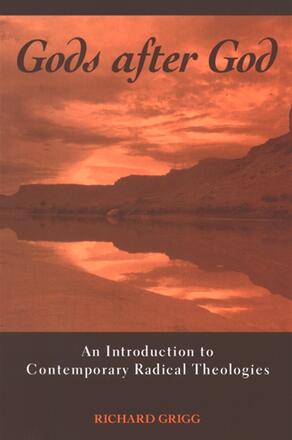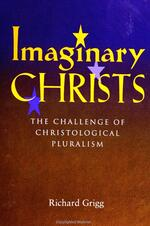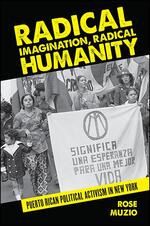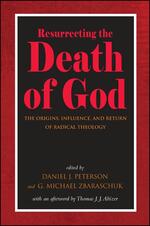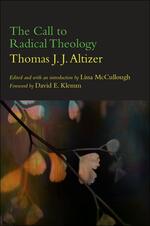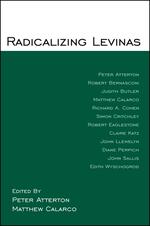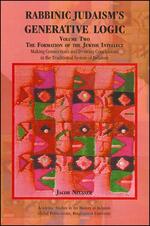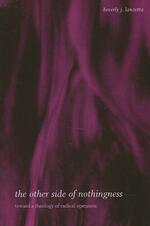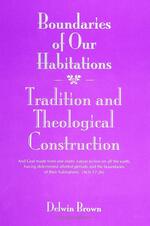In this article, I argue that a radical public theology that sheds its religious garment in a kenotic exocentric movement toward the world functions as a radical sacrament that is both faithful to its Christian origins and relevant to Western culture.
I’ve written three previous articles on the need [for] Christianity and its theology to become radically public. This publicness pertains to both Christianity’s praxis and discourse. In my first article, “Faith, Atheism, and Beyond,” the argument is that Christian discourse, particularly Christian theology, needs to move beyond the faith vs atheism divide to regain its voice again. In my second article, “Christianity and Atheism: The Necessary Publicness Of Faith,” I argued for a further elaboration of the need for the publicness of Christian discourse. My argument was largely based on a brief analysis of both the history of Western thought and Christianity’s bad track record with regard to it's calling throughout history. In my third article, “The Publicness of Christian Discourse As Divine Movement”, I further elaborate my argument by means of a few examples and a reference to the incarnation. This is the fourth and final installment of my mini-series on the necessity of the publicness of the Christian faith and especially its discourse.
Introduction
My argument is a work in progress. Running a content marketing firm doesn’t allow me to absorb a lot of books and spend a lot of time pondering, constructing, and theologizing. Luckily there are hot showers for inspiration and Saturday pm moments of frenzied typing. So there goes.
This is how I will proceed in this article. I will first describe 5 general movements or changes that I see as necessary for Christian discourse to regain a public relevance in the Western discourses on culture, economics, and politics. After that, I will focus on the sacramental nature of the Christian community. I will attempt to interpret it in a radical way, i.e. with regard to its roots and with regard to the anti-traditional tradition of radical theology.
My own amazing discovery as I was dissecting the elements and charting the trajectory needed to achieve public relevance, was that the move toward radical theology is at once a retrieval of one of the most basic and fundamental aspects of the Christian tradition.
Theology’s task is to reveal the sacramentality of embodied life. This is at once its theological injunction and its practical path toward regaining its public function. In other words, theology’s lack of publicness is a failure at the heart of current theological discourse itself (not to mention Christian existence).
Five Changes Western Christianity Needs To Make
When I argue for changes, it is always up to individual Christians and Church organizations how much they want to change and to what extent they have been awakened to the need for change as well as the potential that resides within their religion’s repository. But here are 5 changes that I consider absolutely essential:
1. Goodbye to Organized Religion
There needs to be a massive shift from an ancient framework of reference to a new one. To be precise, a religious framework needs to make room for a non-religious one. This is not a sell-out to a secular world but an acknowledgment of the secular nature of the civilization that has emerged out of the Enlightenment. Christianity needs to face the truth about its backwardness and disastrous contribution to the political situation that birthed the Enlightenment. It needs to see how its dogmatic and authoritarian attitudes stood in the way of progress and positive developments in science.
At the same time, Christianity should do so while affirming the religious nature of all human talk and praxis. There is a huge difference between religion and religiousness. Religiousness drives humanity and gives birth to religions, philosophies, science, art, and ideologies alike. Religion is but one specific instance of religiousness and so is secularity. But the move must nonetheless be made. In fact, I’d like to say that Christianity needs to discover its own secularity.
2. A Change in the Concept of God
There needs to be a massive shift in the concept of God, or better even, the conceptualization of what concepts are. The word “god” is a mere signifier; a signifier for the unknown that nevertheless was encountered in ethical resolves as well as religious and existential experiences. The fact that entire books were wrapped around such calls, experiences, and insights doesn’t make it more concrete than what initially gave rise to the books.
Moreover, “gods” are constructions. They are things we put together to perform various functions: to be an oracle, the foundation of ethics, a means to power, a way to overcome one’s enemies, a way to regulate the various classes of society and the social traffic between them, and to order society in a certain hierarchy. Gods are human artifacts.
The fact that the secular gods are no longer products of religion but cultural, economic, or social necessities, speaks both to the fact that gods remain important but also to the fact that they are always constructed. And no god is more constructed than the sovereign who presides over the papal and Calvinistic distribution of power. Gods are machines, “perpetuae mobilae,” self-propagating “eternal” devices that operate without the need for being fed with energy. All they require is our imagination.
For this reason, functional atheism (instead of committed metaphysical atheism like that of the New Atheists) might be a good baseline, as Heidegger shows in his “Bing and Time.” But given the religious nature of human thought and action, even atheism, as well as secularism and free-market capitalism, have religiosity inscribed into them. Perhaps, we’ll better stick with the nomenclature of gods and goddesses.
3. A Change In Christianity’s Project
Western Christianity has for many centuries been about one thing: truth discovery. As a truth discovery project, including truth’s preservation, categorization, proclamation, and defense, Christianity has been in the business not of sharing a gospel of peace but a rule of power.
The cognitive thrust has always been in the service of power. Whoever is right has the right connection with the divine. Whoever has the sole claim to being connected with the divine is the divine’s representative and rightful heir. Once you understand this, European history becomes relatively easy to understand.
The cognitive must be replaced, I believe, with an embodiment of the gospel (whatever that term means, but I’m freely using it here anyway). Embodiment of the gospel implies automatically a renunciation of power because the One whose gospel we aim to embody was the powerless prophet, the god who died.
4. A Change In The Understanding Of Christ
About that prophet who was the god who died. I strongly believe that we need to make the move from a literal understanding of Jesus as the Son of God to a metaphorical understanding of Jesus as God. (In what I say here, I don’t mean to draw a boundary around what is possible with the figure of Christ, I’m merely pointing in a possible direction of which the defining characteristic is what it points away from, namely, mythological religion.)
Why do I propose this move? (a) Because the notion of “Son of God” is completely meaningless unless it refers to some action figure in a superhero movie. (b) Because the term was always meant metaphorically in the first place (does God the Father have a body with sexual organs? No? Then “Son of God” is a metaphor–geez, how hard can this be?) (c) Because a metaphorical understanding of “Son of God” gets us so much closer to the idea behind it.
Jesus is the harbinger of a new form of being a new form of existence. With him, we come to the realization that the gods we always worshiped were fashioned after human imagination and therefore constructs. With Jesus, a new concept of god breaks through (yes, within a religious framework) in which we see god as weak and powerless.
With Christ, the eternal, immortal, omnipotent, all-knowing dies and is obliterated on a cross. In Jesus, as the Word become flesh, we see the god we constructed materialized as the antithesis of our religious imagination. In Jesus, we realize that the idea of god is manifested in self-giving love. We now understand that this divine passion we so desire and crave is something we can’t stand being enfleshed. And yet, there it is.
And thus, with Jesus, we have a non-religious concept of god. The constructed god is kenotically obliterated, exocentrically expressed outward to humanity in the flesh, and away from religious constructions of gods and idols. Our hope is fulfilled in Christ and it frightens us. Jesus represents the new humanity that exists in the flesh in exocentric selfhood. We recoil at the invitation to participate in this new godhood.
5. A Change To Exocentricity
Continuing along the thread of exocentricity, i.e. the move away from the center of the self as a defendable unit of consciousness, our religion, Christianity, needs to be reconciled similarly exocentrically. Exocentricity is a word that means: out of or away from the center.
Our religion is not about secret insider knowledge that talks about being born again as something you can’t understand but need to experience, about the mysteries of Christ, about the secret practices of faith, mystical experiences, or the hidden treasures of our teachings. Bollocks.
Christian truth is publicly available truth. Truth as interpretation of the world, truth as the call for justice, truth as a path to meaningful selfhood, truth as the way of Christ that leads from the self to the other. And what about God? Oh, God became flesh, remember. There is no remainder.
Christian truth is (or ought to be) a contribution to the ongoing search of Western civilization to the meaning and purpose of human life, and to the ideas of what it is to be a human community. It is a prophetic antithesis to the standardized practices and societal structures that always tend to become a constrictive system that eventually squeezes the life out of the little ones. Christian truth speaks truth to power and speaks of the way of Christ as a path toward a new humanity, i.e. the kingdom of God.
Hence there is no arcane discipline as Bonhoeffer suggested. Instead, there is openness, accountability, and, if must be, a cross on a hill.
Radical Sacramentality
All of the above transformations, in spite of their seemingly blasphemous radicality, points in the direction of something that is at the very heart of Christianity: incarnation, kenosis, sacramentality. The central issue is that theological discourse needs to deliver on the sacramental nature of human flesh and all of creation as it is encoded in the doctrine of the incarnation.
One might think that I’m basically kicking the legs from under Christianity with the five points above. But I’m not. I’m retrieving their essence in my call for a radical sacrament. A brief discussion of the following words I used in my opening sentence will make this clear: religious garment, kenotic exocentric movement, radical sacrament.
An Exocentric Kenotic Religionless Movement
If the Word became flesh, Christianity has done a great job of turning the flesh into word again, hiding the flesh of the Christ behind shrouds of doctrine, layers of religiosity, and traditional sedimentation. Christianity needs to shed its doctrine, its religious appearance, its traditionality in order to retrieve afresh the Christian Gospel.
As a radically exocentric movement, as discussed under point 5 above, Christianity, i.e. the Christian movement, the Church, Christian discourse, needs to become a kenotic community. Kenosis is the technical term in Christianity to point to the movement of the Christ as he emptied himself to become one of us. Nothing was left of his equality with God, Paul says in his Epistle to the Philippians (see New Testament), as he became a slave to all of humanity.
Just like his identity and origin were obliterated as he was nailed on the cross, so our Christian identity and Christian tradition need to be relinquished as we seek to be to our world what Christ was to his (because revelation is today and not 2000 years ago). This is what it means to be religionless.
Becoming the Sacrament
Thus we become the true sacrament to the world. What is a sacrament? A material substance that becomes the bearer of divine grace. “This is my body and my blood,” Christ said as he shared bread and wine. Christ’s body was the sacrament of divine grace in order that our frail and mortal human bodies might become sacraments of grace and love and peace in this world.
By letting go of Christianity as a religion without the need or desire to protect our belief system we can be relevant again for the world. Without the need to provide arguments for the existence of the Christian God or even the divinity of Jesus and by adopting the radical kenotic move into the world without remainder–just as Christ came without remainder–we become the sacrament.
- jdk
* * * * * * *
Related
December 29, 2020
October 25, 2019
March 18, 2019
Categories
Death Of God,
Exocentric,
Kenosis,
Post-Christian,
Post-Religion,
Radical Theology,
Religion,
Religionless,
Religiousness,
Sacrament,
Sacramentality

























































